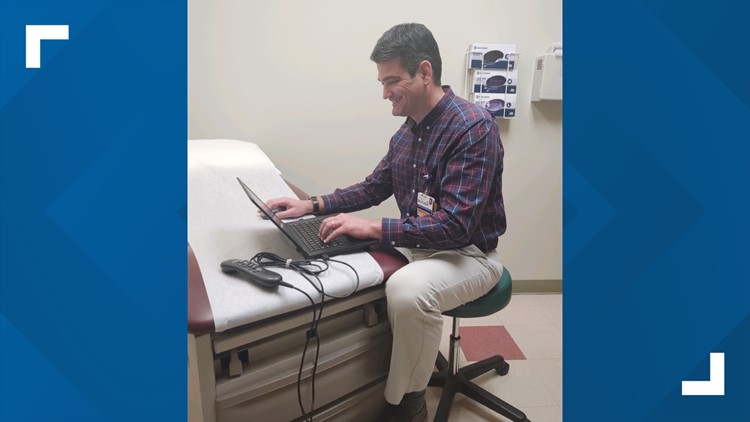WellSpan Health said Monday its doctors are harnessing technology to offer telephone and video visits to medical and behavioral health patients during the COVID-19 outbreak.
Remote care protects patients, clinicians and staff by observing the social distancing that health officials are urging to lessen the spread of COVID-19, the healthcare network said.
“We are committed to the health of our patients,” said Kyle Letner, director of Connected Health for WellSpan, in a press release. “In this time where our traditional way of seeing patients in an office setting may not be feasible or safe, we are finding the opportunity to see patients with whatever means we can, using technology.”
After federal and state health officials began recommending social distancing, WellSpan physician practices began reaching out to patients to see if they could and wanted to have a telephone visit or a video visit, using the camera on a smartphone, laptop or tablet.
WellSpan Health’s primary and specialty care practices all are now offering the option of these visits to appropriate patients.
Before this work began, less than 1 percent of patient visits were done remotely. That number rose to 40 percent in just one week.
Who can have a remote visit?
Telephone or video visits are suitable for patients with acute, common illness, such as a cough, urinary tract infections, sinus infections, diarrhea, a rash, flu-like symptoms and other issues, said Brian Pollak, M.D., medical director of Connected Health. In fact, Pollak said, patients with COVID-19 symptoms would be well-suited for a remote visit, if their symptoms are not severe.
Telephone or video visits also are appropriate for patients seeking preventive care or for patients seeking routine follow-up for ongoing health issues such as high blood pressure, diabetes, high cholesterol, thyroid issues and other chronic problems, in conjunction with the necessary lab work or pharmacy visits.
Video visits are the preferred option for remote care, because seeing patients allows clinicians to best assess their condition.
Clinicians still will need to physically see patients who need a hands-on examination, to listen to their lungs, look into their ears or examine unusual lumps, for example. Also, remote visits are not well-suited for patients with more complex symptoms, such as someone who might have belly pain and a fever, patients with a chronic illness who experience new or unusual symptoms, or patients with a sudden onset of concerning symptoms such as new headaches with numbness.
For more information, visit WellSpan.org/coronavirus.
SOURCE: WellSpan Health



